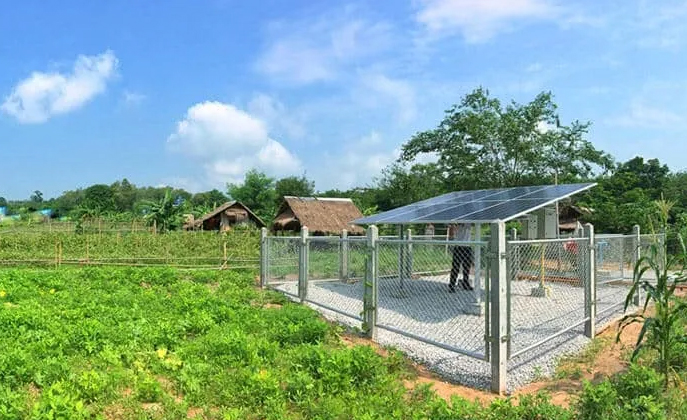A solar-powered water pump is a concept that is environmentally-friendly. More importantly, it is a concept that gets rid of any power grids or fossil fuels used to pump water out of the ground. Below, we are listing the advantages and disadvantages of their use.
Advantages of solar water pumps
The first advantage of solar water pumps is that they are reliable in regional and remote areas. A perfect example of this is Africa, which is one of the poorest remote regions in the world with an abundance of water—but also the most dominant region when it comes to most days of sun in the year. On the flip side, Africa is thought to possess 9% of the world’s freshwater resources which translates to around 4,000 km3 of water per year. Deploying solar water pumps in Africa is, therefore, the perfect alternative to any other fuel-based sources and an alternative which can stimulate life in every part of this continent.
Easy to transport and relocate, solar powered water pumps can be organized as per the needs of the farm and have extremely low operating costs. Both of these are major advantages, paired with their cost-efficiency in the long run, show that a solar water pumping system is the perfect solution for regions with sunny days and plenty of water on their grounds.
Using free solar energy is also an advantage over manual irrigation which takes up a lot of your valuable energy and time (more on this later!).

Disadvantages of solar water pumps
The main disadvantage of deploying a solar-powered irrigation pump for agriculture is its cost (initial investment). Even though it depends on the power of the specific pump, one 120 Watt solar water pump which promises to produce 2,100 gallons of water per day can be found on online marketplaces from around US$235. An entire system for a solar-powered irrigation pump based on one pump can also be found for around $498. Other sites like eBay, the prices for kits like these are relatively the same.
Obviously, there is a major difference between deploying a solar water pump for your home and one for an agriculture project. With different types, sizes and needs come different costs. There are cheaper and more expensive models but the average cost of solar water pumps is generally high, considering the fact that many of them need to be deployed for effective irrigation. All in all, compared to the cost of fossil fuels and other types of energy, solar is still a winner in the long run.
In addition to this, solar energy in agriculture is also very weather-dependent. Even though solar energy can still be collected during cloudy and rainy days, the efficiency of a solar system drops. This is why solar irrigation systems are best used in regions with a lot of sunlight.